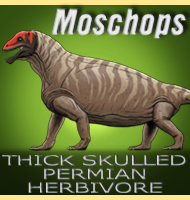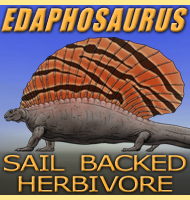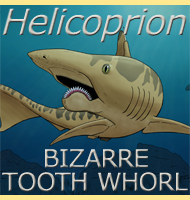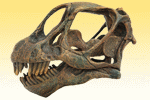


Diplocaulus
Name: Diplocaulus
(Double stalk).
Phonetic: Dip-low-cawl-us.
Named By: Cope - 1882.
Classification: Chordata, Amphibia,
Lepospondyli, Nectridea, Keraterpetontidae.
Species: D. salamandroides
(type), D. brevirostris, D.
magnicornis.
Type: Carnivore/piscivore.
Size: 1 meter long.
Known locations: USA, Texas.
Time period: Permian.
Fossil representation: Several Specimens.
The unusual boomerang shape of the head has been a source of interest ever since its discovery. The two main theories are that it either functioned as a hydrofoil allowing it to move in strong currents, or that it made it impossible for other predators to swallow. It may have course been a form of recognition between members of the same species.
Further reading
----------------------------------------------------------------------------
Random favourites
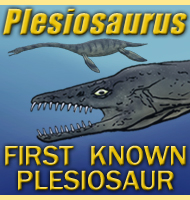 |
 |
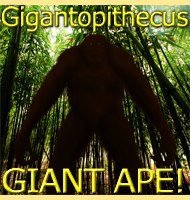 |
